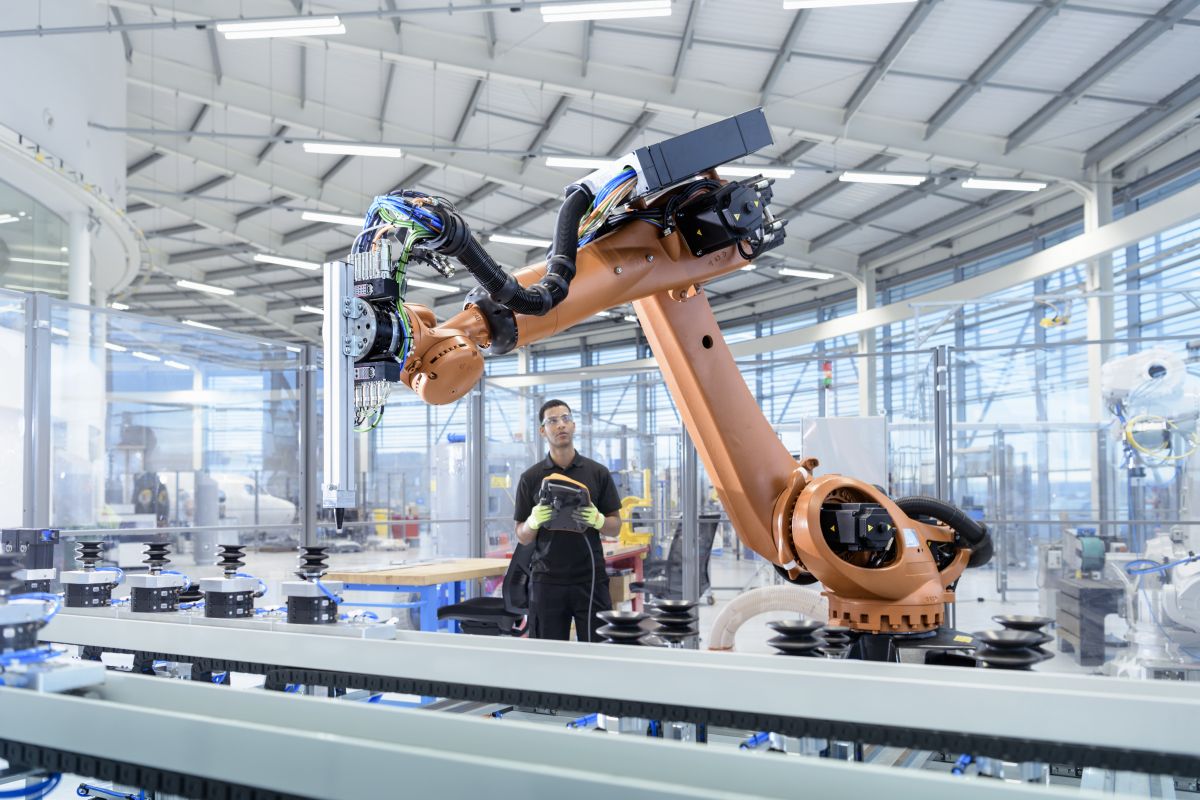
Unions are vital to delivering a better future for work
Artificial intelligence chatbots are actually being run by real people, or “ humans pretending to be robots pretending to be human”, as Bloomberg put it.
It’s a nice example of what we know from the history of technology in the workplace: it’s created as many jobs as it’s destroyed.
For example, when the TUC was formed back in 1868, one in five people worked in agriculture.
Today, it’s just one in a hundred because technology has transformed how we produce our food.
At the same time, technology has created a huge range of new jobs – including, it seems, impersonating a chatbot.
That’s why we’re optimistic about the future of work over the next 150 years. Rather than destroy jobs, we think technology can help create them.
The government agrees, estimating that an increase in the use of digital technology by industry could lead to a net gain of 175,000 jobs over 10 years.
But there are also real risks that new technologies could exacerbate the trend for employers to shift risk onto workers while refusing to share the rewards from growth.
That’s why unions are vital – strong unions can ensure that new technology will make work better, not worse.
When we polled workers over the summer on how new tech was affecting their working lives, we found three areas where workers feared that without action, work could get worse:
1. Unfair pay
Workers are suffering the longest pay squeeze for 200 years, so it’s no surprise that they put improving pay top of the list of things they want. Three out of four said a pay rise was what would most improve their working life in the coming years.
New tech could help us deliver this. The Government estimate s that robots and autonomous systems could boost UK output by £200bn by 2025. But over half of workers fear the benefits of new tech are likely to be hoarded by managers and shareholders.
Given that Amazon boss Jeff Bezos has just become the richest man in the world while his workers face horrific working conditions, this shouldn’t come as a surprise. After all, 89 per cent of Amazon workers told a recent survey they feel exploited.
2. Work on demand
Over time, productivity advances delivered by new technology have helped unions negotiate shorter working hours and more control over working hours. The average working week in the UK has fallen from over 60 hours when the TUC was first founded to just over half that today.
But today, the ‘on demand’ online economy is increasingly used as an excuse by employers to blur the lines between working and non-working time. Over 1.4 million people work seven days a week and 3.3 million people work more than 45 hours a week. Our polling found that that stress and long hours are workers’ biggest concerns after pay.
And rather than using tech to innovate for better jobs, many gig-economy companies are taking us back to the days of piece work, packaging work into ever smaller pieces of time in an attempt to evade the minimum wage or offer workers basic security.
3. Removing control
As TUC research earlier this summer showed, over half of workers think their boss is spying on them.
Much of this is through old methods – CCTV cameras, bag searches and reading emails.
But new tech is intensifying people’s fears. Some 15 per cent of workers thought facial recognition software might be used in their workplace, and over 20 per cent thought their employers might be using key-stroke monitoring to assess their work.
A future that works for everyone
Trade unions are already taking on these challenges.
Where unions are recognised, they’ve put in place strong protections against intrusive surveillance. At Royal Mail the company has agreed with unions that location tracking software can’t be used for disciplinary purposes.
And new research from the OECD comparing advanced economies shows that where wages are negotiated with unions across whole sectors, pay is more equal.
Unions are also fighting for more control over working time for their members. In the UK we’ve won workplace victories against employers using zero-hours contracts and gig companies advocating a return to piece work.
Across Europe, unions have been at the forefront of protecting time away from work. A law pioneered by unions in France gives workers the ‘ right to switch off’ . And in Germany, the metalworkers union IGMetall has won the right for their workers to switch to a four day week.
We can build on those victories. When we asked workers for their preferred working week, most picked four days. If the twentieth century brought us the weekend, a typical four-day week is a plausible ambition for the twenty-first.
We need stronger unions to deliver the pay rises that workers so desperately need and to ensure that technology is introduced to the workplace in ways that make work better.
That’s why our first task as a movement to respond to the future of work is to grow our own strength. Expanding collective bargaining , where unions negotiate pay and conditions on behalf of workers, will be key to delivering a future that works.
But government must play its part too. The TUC has called for a new future of work commission – bringing unions, business and experts together to discuss how to make technology work for everyone.
The work to ensure that the technology of the future is harnessed in workers’ interests has to start today.
Stay Updated
Want to hear about our latest news and blogs?
Sign up now to get it straight to your inbox
